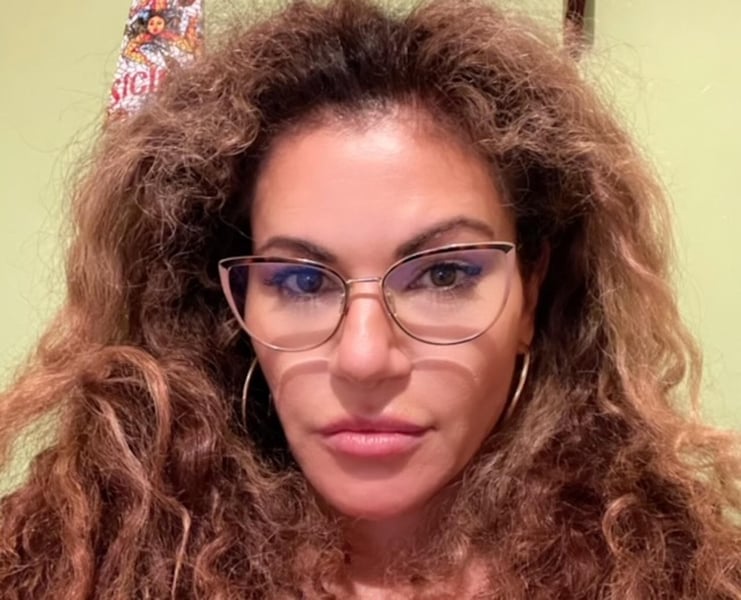Manténgase sano!
Resultados de su búsqueda "Sensory Problems".
Resultados de noticias de salud - 12
A COVID-19 infection might blunt a person’s sense of smell for years afterward, but so subtly they might not even notice it, a new study says.
In all, 4 out of 5 people who reported that COVID had altered their sense of smell still scored low on a clinical scent detection test taken about two y...
- Dennis Thompson HealthDay Reporter
- |
- September 26, 2025
- |
- Página completa
People sense millisecond shifts in odor as quickly as they might spot a change in color, new research shows.
The study discounts the notion that smell is a "slower" sense than sight or hearing, scientists say.
"A sniff of odors is not a long exposure shot of the chemical environment that averages out" over time, explained study lead author
Anyone who has quickly slurped up a milkshake or chomped on a snow cone knows the sharp, brief pain of "brain freeze."
Its cause is a mystery, but it's not harmful, according to experts at University of Texas Southwestern Medical Center in Dallas.
"It is very common and happens more frequently in children,"said
People who are blind are better at sensing their own heartbeats, according to a new study that found blindness appears to heighten one's ability to feel signals from the inner body.
Researchers from Sweden and Poland tested this in a study of 36 blind individuals and the same numbe...
- HealthDay Reporter
- Cara Murez
- |
- March 29, 2023
- |
- Página completa
Most people have cherished memories of their grandparents reading to them as children.
Ekaterina Pesheva's memories are quite different.
"I remember distinctly being very irritated and very angry listening to my grandmother reading children's books to me, like fairy tales," said Pesheva, 48, who lives in Boston. "I would become aware of her mouth getting dry, and that, for whatever ...
- HealthDay Reporter
- Dennis Thompson
- |
- August 26, 2022
- |
- Página completa
When dogs' hearing fades, their mental skills follow, new research reveals.
For the study, the researchers examined the link between hearing loss in aging dogs and dementia. The findings shed light on ways sensory loss affects canine cognition (thinking skills) and could lead to better tre...
- HealthDay Reporter
- Sydney Murphy
- |
- August 12, 2022
- |
- Página completa
While humans typically use their sight to orient themselves, dogs navigate the world by combining their sense of smell with their vision.
So claims a new study that found dogs' sense of smell is integrated with their vision and other unique parts of their brain.
"We've never seen this connection between the nose and the
It has happened to millions during the pandemic: a sudden loss of smell that heralds the start of a COVID-19 infection. But scientists have been stumped as to why.
Until now.
New research suggests the symptom is due to inflammation rather than directly caused by the coronavirus.
The researchers noted that loss of smell (
Immune system-triggered inflammation is the likely reason for the loss of smell reported by many COVID-19 patients, a new study finds.
"As a neuropathologist, I wondered why smell loss is a very common symptom with COVID-19 but not with other respiratory diseases," said lead study author Dr. Cheng-Ying Ho. She ...
- HealthDay Reporter
- Robert Preidt
- |
- April 12, 2022
- |
- Página completa
Scientists have discovered that even a mild case of COVID-19 might inflict damage on your brain.
On average, middle-aged and older adults who'd been sick with COVID showed signs of tissue shrinkage in brain areas related to the sense of smell, the researchers reported. They also tended to have more trouble completing complex mental tasks, when compared to people with no history of COVID-1...
- HealthDay Reporter
- |
- March 7, 2022
- |
- Página completa
A medication that acts on certain brain receptors can temporarily ease visual-processing problems in some adults with autism, a small study has found.
Researchers said it's far too early to know whether the drug, arbaclofen, could prove useful in managing those visual issues. But the findings do give in...
- HealthDay Reporter
- Amy Norton
- |
- January 6, 2022
- |
- Página completa
People who've lost their ability to smell and taste due to COVID-19 have significant struggles, but they can find ways to cope with their situation, a new study shows.
One of the most common side effects of COVID-19 is the loss of the sense of smell, which severely affects the sense of taste. This can lead to anxiety, depression and reduced quality of life.
In this study, five women...
- HealthDay Reporter
- Robert Preidt
- |
- October 27, 2021
- |
- Página completa

.jpg?w=1920&h=1080&mode=crop&crop=focalpoint)
















